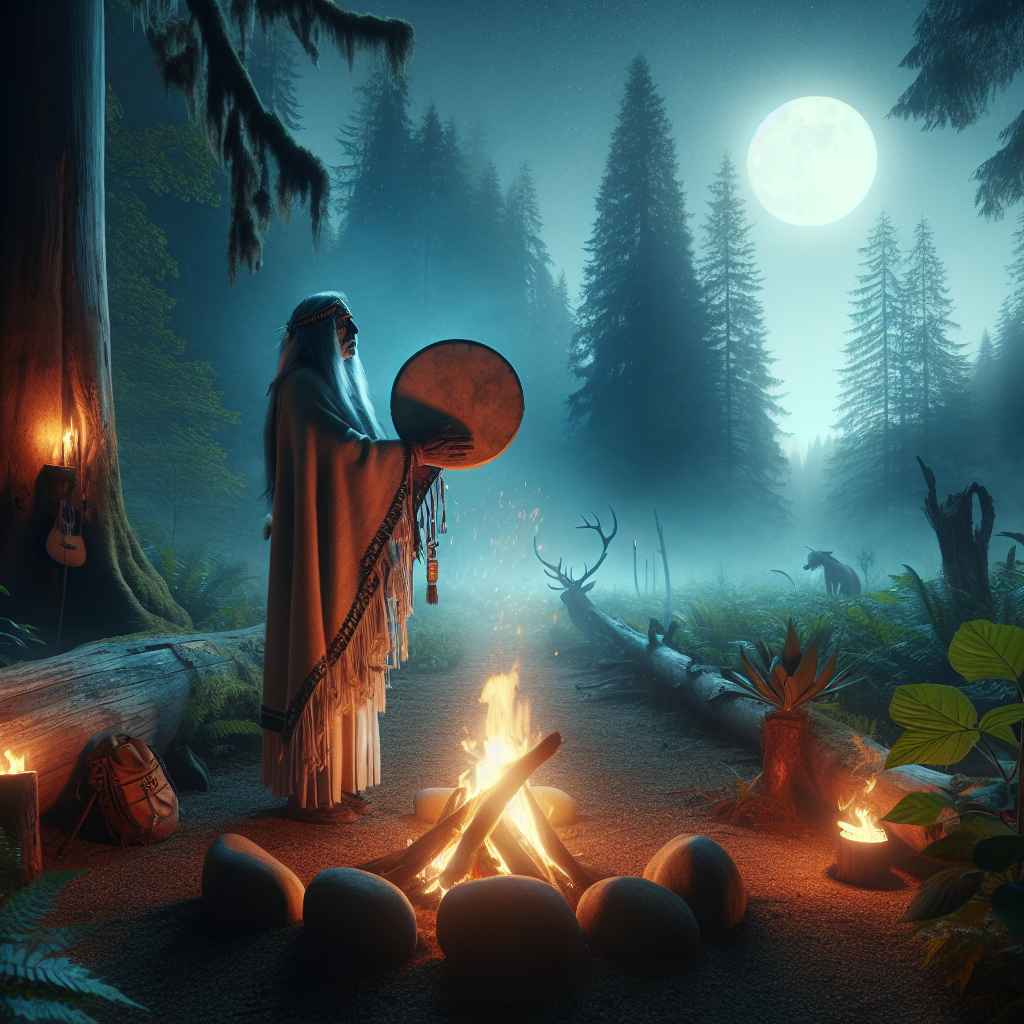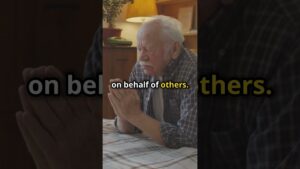Spiritual Devotional about Shamanism and Indigenous Wisdom
Embracing the Spirit: The Wisdom of Shamanism and Indigenous Teachings
Greetings, beloved readers! 🌟
Today, I am overwhelmed with joy to dive into a topic that touches the very fabric of our existence and connects us deeply with creation: Shamanism and Indigenous Wisdom. Let us journey together through the intricate tapestry of spiritual knowledge passed down from ancient times and explore how it harmonizes beautifully with principles from the Bible.
The Sacred Dance of Shamanism
Shamanism, at its core, is a spiritual practice grounded in the belief that everything in the universe is interconnected. Shamans serve as intermediaries between the physical world and the spiritual realm, bringing healing, wisdom, and guidance. They teach us to revere nature, respect the spirits, and walk in harmony with the Earth.
Psalm 24:1 proclaims, "The earth is the Lord’s, and everything in it, the world, and all who live in it.” This verse echoes the Shamanic belief in the sanctity of the Earth. Just as the Bible reminds us that the world and its fullness belong to the Lord, Shamanism teaches us to honor and respect the natural world and all its inhabitants. What a beautiful way to see God’s creation in all its splendor and to understand our responsibility to care for it!
Wisdom from the Ancients
Indigenous wisdom holds profound insights into living a balanced and harmonious life. These teachings remind us to listen to the winds, learn from the waters, and dance with the fires. It’s about understanding the sacredness in every living thing and seeing God’s fingerprints in the flora and fauna around us.
Romans 1:20 tells us, "For since the creation of the world God’s invisible qualities—his eternal power and divine nature—have been clearly seen, being understood from what has been made, so that people are without excuse.” Indigenous teachings amplify this truth by drawing our attention to the rhythms of nature, encouraging us to see the divine in all aspects of creation.
The Power of Community and Prayer
Both Shamanism and Biblical teachings emphasize the importance of community and collective prayer. Indigenous rituals often involve the entire community, coming together to pray, heal, and celebrate life’s milestones, much like how early Christians gathered in communion.
Matthew 18:20 resonates deeply here: "For where two or three gather in my name, there am I with them.” The Bible assures us of God’s presence in our gatherings, just as Indigenous ceremonies invoke the spirits and the ancestors, enveloping the community in divine grace and guidance.
Healing and Wholeness
One of the most captivating aspects of Shamanism is the emphasis on healing – not just physical ailments but also the mind and spirit. Shamans believe in holistic healing, integrating the spiritual, mental, and physical aspects of our being.
Similarly, Jeremiah 33:6 offers a divine promise: "Nevertheless, I will bring health and healing; I will heal my people and will let them enjoy abundant peace and security.” How reassuring it is to know that divine healing transcends all barriers, encompassing every part of our being and reminding us of God’s unwavering love and care for us.
Walking in Harmony
Both Shamanistic practices and Biblical teachings call us to live in harmony with ourselves, others, and the world around us. We’re encouraged to find balance, to walk in peace, and to let love be our guiding principle.
Micah 6:8 adorns our journey with these words: "He has shown you, O mortal, what is good. And what does the Lord require of you? To act justly and to love mercy and to walk humbly with your God.” Indigenous teachings echo this call, urging us to walk gently upon the Earth, act with justice, show mercy, and live in humility.
Embrace and Celebrate
I invite you to embrace these beautiful teachings with an open heart. Let Shamanism and Indigenous wisdom inspire you to see the world through different lenses, to deepen your connection with God’s creation, and to walk in love and harmony.
Let us celebrate the wisdom that comes from all corners of the world, each a precious thread in the magnificent tapestry of God’s creation. As we open our hearts to these ancient truths, we weave our own stories into the grand narrative of divine love and harmony.
May your spirit be uplifted, your heart filled with joy, and your life enriched with the boundless wisdom that surrounds us. 🌿🌞❤️
Blessings and Light,
[Your Name]
Explore and dig up answers yourself with our BGodInspired Bible Tools! Be careful – each interaction is like a new treasure hunt… you can get lost for hours 🙂
Q&A about Shamanism and Indigenous Wisdom
Sure! Here is a detailed Q&A based on Shamanism and Indigenous Wisdom:
Q: What is Shamanism?
A: Shamanism is an ancient spiritual practice found in many cultures across the world. It is characterized by the belief that practitioners, called shamans, can interact with the spirit world through altered states of consciousness. Shamans often act as healers, mediators, and intermediaries between the physical and spiritual realms. They use rituals, drumming, chanting, and herbal medicine to heal individuals and communities.
Q: How do Shamans enter altered states of consciousness?
A: Shamans typically enter altered states of consciousness through various methods, including drumming, dancing, chanting, fasting, and the use of entheogens (psychoactive substances derived from plants). These practices help them to journey to the spirit world, communicate with spirit guides, ancestors, and deities, and bring back guidance and healing for their communities.
Q: What role do spirit animals play in Shamanism?
A: In Shamanism, spirit animals, or power animals, are spiritual guides and protectors that offer wisdom, strength, and support to the shaman and their community. Each spirit animal is believed to embody specific qualities or skills that can be called upon during times of need. The presence of a spirit animal is often revealed through visions, dreams, or shamanic journeys.
Q: What is the significance of the drum in Shamanic practices?
A: The drum is a central tool in Shamanic practices. It is used to create a rhythmic beat that helps the shaman achieve an altered state of consciousness, called "trance," and journey to the spiritual realms. The steady beat of the drum is thought to mimic the heartbeat of the earth and serves as a bridge between the physical and spiritual worlds. For many Indigenous cultures, the drum is sacred and treated with great respect.
Q: How is Indigenous Wisdom preserved and transmitted across generations?
A: Indigenous Wisdom is preserved and transmitted through oral traditions, storytelling, ceremonies, rituals, and the practice of traditional ways of life. Elders and knowledge keepers play a crucial role in passing down teachings, cultural history, and spiritual practices to the younger generations. This wisdom encompasses a holistic understanding of life, emphasizing harmony with nature, community interconnectedness, and respect for all living beings.
Q: Can anyone become a shaman, or is it a role reserved for specific individuals within Indigenous communities?
A: While the calling to become a shaman can manifest in different ways across various cultures, it is generally believed that true shamans are called by the spirits rather than choosing the path themselves. This calling often involves a series of profound spiritual experiences or challenges. In many Indigenous communities, shamanic training and knowledge are passed down through specific familial lineages or selected individuals who are identified by the community or an elder shaman.
Q: What are some common misconceptions about Shamanism?
A: Common misconceptions about Shamanism include the idea that it is a uniform practice that is the same across different cultures, or that shamanic practices are solely centered on the use of psychoactive substances. In reality, Shamanism is diverse, with practices and beliefs varying widely among different Indigenous cultures. Another misconception is that Shamanism is a "primitive" or outdated belief system, when, in fact, it is a sophisticated and deeply spiritual tradition that continues to offer valuable insights into the human condition and our relationship with nature.
Q: How is Indigenous Wisdom relevant in modern times?
A: Indigenous Wisdom offers profound insights into sustainable living, environmental stewardship, and community coherence. In a time of ecological crisis and social fragmentation, the holistic perspectives of Indigenous cultures emphasize the importance of living in harmony with nature, respecting all forms of life, and maintaining strong, cooperative relationships within communities. Many people are turning to Indigenous Knowledge to find solutions to contemporary challenges and to reconnect with a more balanced way of life.
Feel free to ask if you have more specific questions or need detailed information on any particular aspect related to Shamanism and Indigenous Wisdom!


